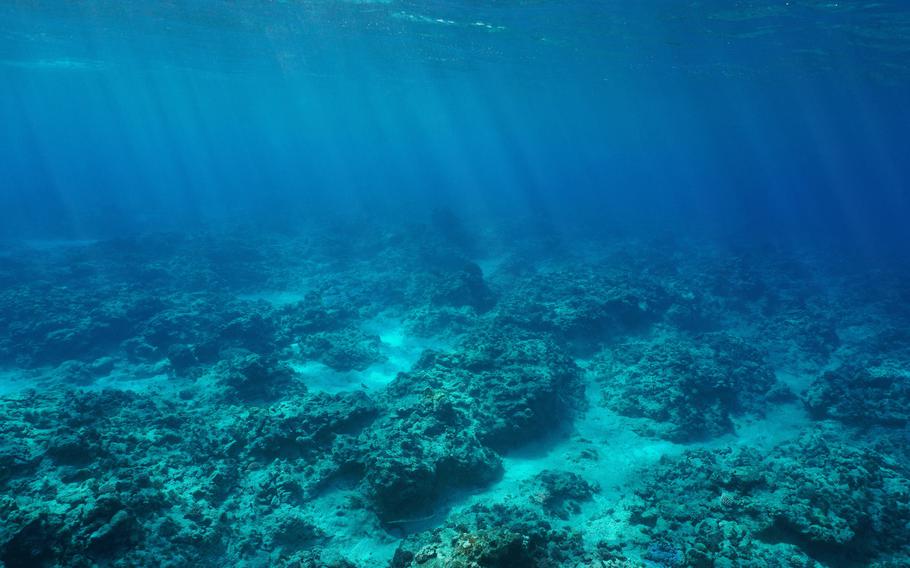
The ocean floor in the south Pacific Ocean, Rurutu, Austral Islands, French Polynesia. (Seadam, Dreamstime/TNS)
(Tribune News Service) — U.S. claims to a vast section of the seabed floor — and the potential resources buried within — have no basis in international law and should be rejected, according to government representatives from Russia and China.
The comments came during a debate at a session of the International Seabed Authority in Kingston, Jamaica, in response to recent claims by the United States that would add about 386,100 square miles to its continental shelf in the Bering Sea, Pacific Ocean, Atlantic Ocean and Gulf of Mexico.
Countries that have ratified the 1982 United Nations Convention on the Law of the Sea undergo a lengthy international process to reach agreement on where the boundaries of underwater continental shelves lie. Those demarcations are important because exclusive economic rights to potentially lucrative seabed resources are based on them. Russia, Canada, and Denmark — on behalf of Greenland — have all filed competing claims to areas in the High Arctic, for example, as climate change opens the region to more sea traffic and exploration.
The seabed authority doesn’t identify the names of individual delegates when they speak on behalf of their country. But the representatives were emphatic in advancing their nations’ positions.
The U.S. hasn’t ratified the U.N. Convention, and its unilateral claims jeopardize a fragile international balance, as well as the integrity of the convention, the representative for Russia said. The delegate said Russia rejects the selective approach of the U.S. to international law.
China’s delegate said the United States doesn’t have the right to make such claims unilaterally, and can’t expect to enjoy the benefits of the convention without having ratified it. The representative also described the resources in the international seabed as the common heritage of mankind and said any act that threatens that shouldn’t be accepted. Beijing ratified the U.N. agreement in 1996.
Russia and China are increasingly aligning on international positions, including those in the Arctic. This month, the Pentagon released a new Arctic Strategy that highlighted what it sees as the risks posed by that cooperation.
Three days later, the U.S. tracked Russian and Chinese bombers flying together off the coast of Alaska for the first time.
The U.S. representative, Gregory O’Brien, defended his nation’s position on continental shelf claims, saying it followed the rules of the convention in making them.
©2024 Bloomberg L.P.
Visit bloomberg.com.
Distributed by Tribune Content Agency, LLC.